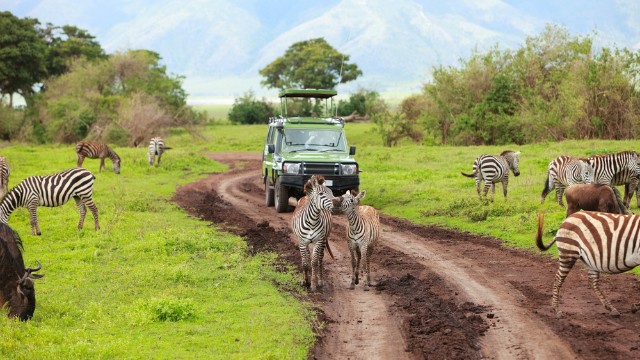If you’re a safari newbie, you should know that going on safari is not as simple as hopping in a Jeep and zipping around snapping pictures. There’s a certain etiquette involved, which ensures that you, your fellow safari-goers, and your guide all have a good time. So here’s what not to do on safari, and what not to say.
Leave the pith helmet at home: and all the other outdated gear you may have seen in old movies. There is no need to look like an extra from Out of Africa when you’re on safari. Cargo pants, a few shirts in light neutral colors, a jacket for cold mornings, and a wide-brimmed hat are more than enough.
Don’t complain if you don’t see any big game: National parks and game reserves are not zoos; animals cannot be commanded to appear when it’s convenient for humans. Sightings are dependent on many things, like the time of day, the time of year, seasons, and the weather. And even if all the conditions are right, you still might not see anything exciting. Don’t complain to your guide or ranger — they can’t do anything about it.
Be safe: Don’t EVER get out of the game viewing vehicle or approach an animal on a walking safari unless the ranger says it’s OK. Animals may look cute and cuddly when they are resting or eating, but they can turn into fierce predators in an instant.
Don’t forget to actually LOOK AT the animals: In this day and age, with cellphones and cameras being so ubiquitous, some safari-goers spend their entire game drive looking at the savanna through a lens or on a screen. Yes, it’s OK to do that periodically, but you’ll also want to put the gadget DOWN and look at the majestic scenery with your own two eyes from time to time.
Don’t forget that you might see unsavoury things: Poaching is a problem in many parts of southern and eastern Africa, which means you might happen upon an animal that has been killed and dismembered by poachers. Or you might see a lion killing a baby wildebeest in the most gruesome way possible. This is what happens in the wild — so you have to take the bad with the good and be prepared to see something bloody. If you can’t bear to watch, simply close your eyes.
Don’t be THAT guy or girl: You know the one – always yammering on the cell phone, or bragging about the last 10 safaris they’ve been on, or dropping annoying tidbits of trivia about every bird, spider and flower they encounter. Social skills are important when you’re spending several hours in close proximity with other humans, and if you don’t have any, you’ll make enemies. So try to be quiet and observe. After all, you’re there to see wildlife! Save the phone calls, small talk and stories for lunch or sundowners at the end of the day.
Don’t forget to tip your guide, ranger, and/or tracker: These folks love what they do, but they don’t get paid a lot to do it. Your tips help them live comfortably, if not lavishly, and offsets the danger they put themselves in every day to make sure you have a good time.


